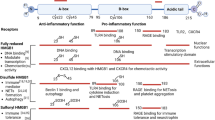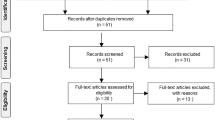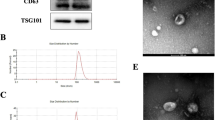Abstract
Long noncoding RNAs (lncRNAs) serve as regulators or effectors of the p53 regulatory pathway. The lncRNA–p53 regulatory network plays an important role in ischemia-induced apoptosis and may be important for post-stroke recovery. Eight genetic variants of p53-related lncRNAs were genotyped in 982 patients to explore the association of single nucleotide polymorphisms (SNPs) in the genes related to the p53 regulatory pathway with ischemic stroke (IS) prognosis in a northern Chinese population. Long- and short-term outcomes were assessed by stroke recurrence and modified Rankin Scale score 3 months after stroke, respectively. We first identified that p53 rs1042522 and LINC-ROR rs2027701 could be associated with IS recurrence risk. On further cumulative effect analysis, we found that these two polymorphisms could jointly be associated with IS recurrence. Patients carrying 2–4 risk alleles showed a significantly higher IS recurrence risk than those harboring no or a single risk allele. In contrast to rs2027701 and rs1042522, the other SNPs were not associated with IS recurrence. Subsequently, we found that TUG1 rs2240183 CC genotype was associated with a favorable IS outcome after adjusting for confounding factors. However, the other seven genetic variants of p53-related lncRNAs were not associated with a functional outcome after stroke. p53 rs1042522 and LINC-ROR rs2027701 may exert combined effects on IS recurrence, and TUG1 rs2240183 may be a new biomarker to predict short-term IS outcomes as it modulates p53-mediated apoptosis.




Similar content being viewed by others
Data Availability
The data used in our study are available from the authors on reasonable request.
This study was approved by the ethics committee of the First Affiliated Hospital of China Medical University approval, in accordance with the principles of the Helsinki Declaration (AF-SOP-07-1.0-01). Written informed consents were obtained from all the participants.
Abbreviations
- IS:
-
Ischemic stroke
- lncRNAs:
-
Long noncoding RNAs
- PVT1:
-
Plasmacytoma variant translocation 1
- MALATI:
-
Metastasis associated lung adenocarcinoma transcript 1
- MDM2:
-
Murine double minute 2
- TUGI:
-
Taurine upregulated gene 1
- LINC-ROR:
-
Regulator of reprogramming
- NIHSS:
-
National Institute of Health Stroke Scale
References
Bao MH, Szeto V, Yang BB, Zhu SZ, Sun HS, et al (2018) Long non-coding RNAs in ischemic stroke. Cell Death Dis 15;9(3):281
Gao H, Wang T, Zhang P, Shang M, Gao Z et al (2020) Linc-ROR regulates apoptosis in esophageal squamous cell carcinoma via modulation of p53 ubiquitination by targeting miR-204-5p/MDM2. J Cell Physiol 235(3):2325–2335
Guo J, Hao C, Wang C, Li L (2018) Long noncoding RNA PVT1 modulates hepatocellular carcinoma cell proliferation and apoptosis by recruiting EZH2. Cancer Cell Int 11;18:98.
Huarte M, Guttman M, Feldser D, Garber M, Koziol MJ et al (2010) A large intergenic noncoding RNA induced by p53 mediates global gene repression in the p53 response. Cell 142(409–419):p21
Iyer MK, Niknafs YS, Malik R, Singhal U, Sahu A et al (2015) The landscape of long noncoding RNAs in the human transcriptome. Nat Genet 47:199–208
Khoshnam SE, Winlow W, Farzaneh M, Farbood Y, Moghaddam HF et al (2017) Pathogenic mechanisms following ischemic stroke. Neurol Sci 38:1167–1186
Liu L, Wang D, Wong KS, Wang Y (2011) Stroke and stroke care in China: huge burden, significant workload, and a national priority. Stroke 42:3651–3654
Lin T, Hou PF, Meng S, Chen F, Jiang T, et al (2019) Emerging roles of p53 related lncRNAs in cancer progression: a systematic review. Int J Biol Sci 12;15(6):1287–1298
Liu X, Wang Q, Zhu R (2020) Association of GWAS-susceptibility loci with ischemic stroke recurrence in a Han Chinese population. J Gene Med 25:e3264
Marín-Béjar O, Marchese FP, Athie A, Sánchez Y, González J et al (2013) Pint lincRNA connects the p53 pathway with epigenetic silencing by the Polycomb repressive complex 2. Genome Biol 14(9):R104
Puyal J, Ginet V, Clarke PG (2013) Multiple interacting cell death mechanisms in the mediation of excitotoxicity and ischemic brain damage: a challenge for neuroprotection. Prog Neurobiol 105:24–48
Sánchez Y, Segura V, Marín-Béjar O, Athie A, Marchese FP et al (2014) Genome-wide analysis of the human p53 transcriptional network unveils a lncRNAtumour suppressor signature. Nat Commun 5:812
Wu G, Cai J, Han Y, Chen J, Huang ZP, et al (2014) LincRNA-p21 regulates neointima formation, vascular smooth muscle cell proliferation, apoptosis, and atherosclerosis by enhancing p53 activity. Circ 21;130(17):1452–1465
Wei YS, Yang J, He YL, Shi X, Zeng ZN (2019) A functional polymorphism in the promoter of TUG1 is associated with an increased risk of ischaemic stroke. J Cell Mol Med 23(9):6173–6181
Xiong ZJ, Zhang Q, Wang DX, Hu L (2018) Overexpression of TUG1 promotes neuronal death after cerebral infarction by regulating microRNA-9. Eur Rev Med Pharmacol Sci 22(21):7393–7400
Yang C, Tang R, Ma X, Wang Y, Luo D, et al (2015) Tag SNPs in long non-coding RNA H19 contribute to susceptibility to gastric cancer in the Chinese Han population. Oncotarget 20;6(17):15311–20
Yang J, Zhao J, Liu X, Zhu R (2020) LncRNAs a new target for post-stroke recovery. Curr Pharm Des 26(26):3115–3121
Zhang A, Zhou N, Huang J, Liu Q, Fukuda K et al (2013) The human long non-coding RNA-RoR is a p53 repressor in response to DNA damage. Cell Res 23(3):340–350
Zhang A, Xu M, Mo YY (2014a) Role of the lncRNA-p53 regulatory network in cancer. J Mol Cell Biol 6:181–191
Zhang EB, Yin DD, Sun M, Kong R, Liu XH et al (2014b) P53-regulated long non-coding RNA TUG1 affects cell proliferation in human non-small cell lung cancer, partly through epigenetically regulating HOXB7 expression. Cell Death Dis 22(5):e1243
Zhang T, Wang H, Li Q, Fu J, Huang J et al (2018) MALAT1 activates the P53 signaling pathway by regulating MDM2 to promote ischemic stroke. Cell Physiol and Biochem: International Journal of Experimental Cellular Physiology, Biochemistry, and Pharmacology 50(6):2216–2228
Zhang X, Hamblin MH, Yin KJ (2019a) Noncoding RNAs and stroke. Neuroscientist 25(1):22–26
Zhang Y, Miao Y, Shang M, Liu M, Liu R et al (2019b) LincRNA-p21 leads to G1 arrest by p53 pathway in esophageal squamous cell carcinoma. Cancer Manag Res 4(11):6201–6214
Acknowledgements
We are deeply grateful to all the participants of this study.
Funding
This study was supported by Natural Science Foundation of Liaoning province of China (2019-MS-364) and the National Natural Science Foundation of China (81501006).
Author information
Authors and Affiliations
Contributions
Designed the experiments: Ruixia Zhu. Performed the experiments: Ruixia Zhu, Xu Liu, Jingjing Zhao. Analyzed the data: Xu Liu, Qianwen Wang, Hongtao Chang; Lu Wang. Wrote the paper: Ruixia Zhu ,Qianwen Wang. Revised the paper: Lu Wang.
Corresponding author
Ethics declarations
Conflict of interest
The authors have no competing interests.
Additional information
Publisher's Note
Springer Nature remains neutral with regard to jurisdictional claims in published maps and institutional affiliations.
Rights and permissions
About this article
Cite this article
Liu, X., Wang, L., Wang, Q. et al. Association Between Genetic Variants in the lncRNA–p53 Regulatory Network and Ischemic Stroke Prognosis. Neurotox Res 39, 1171–1180 (2021). https://doi.org/10.1007/s12640-021-00357-7
Received:
Revised:
Accepted:
Published:
Issue Date:
DOI: https://doi.org/10.1007/s12640-021-00357-7




